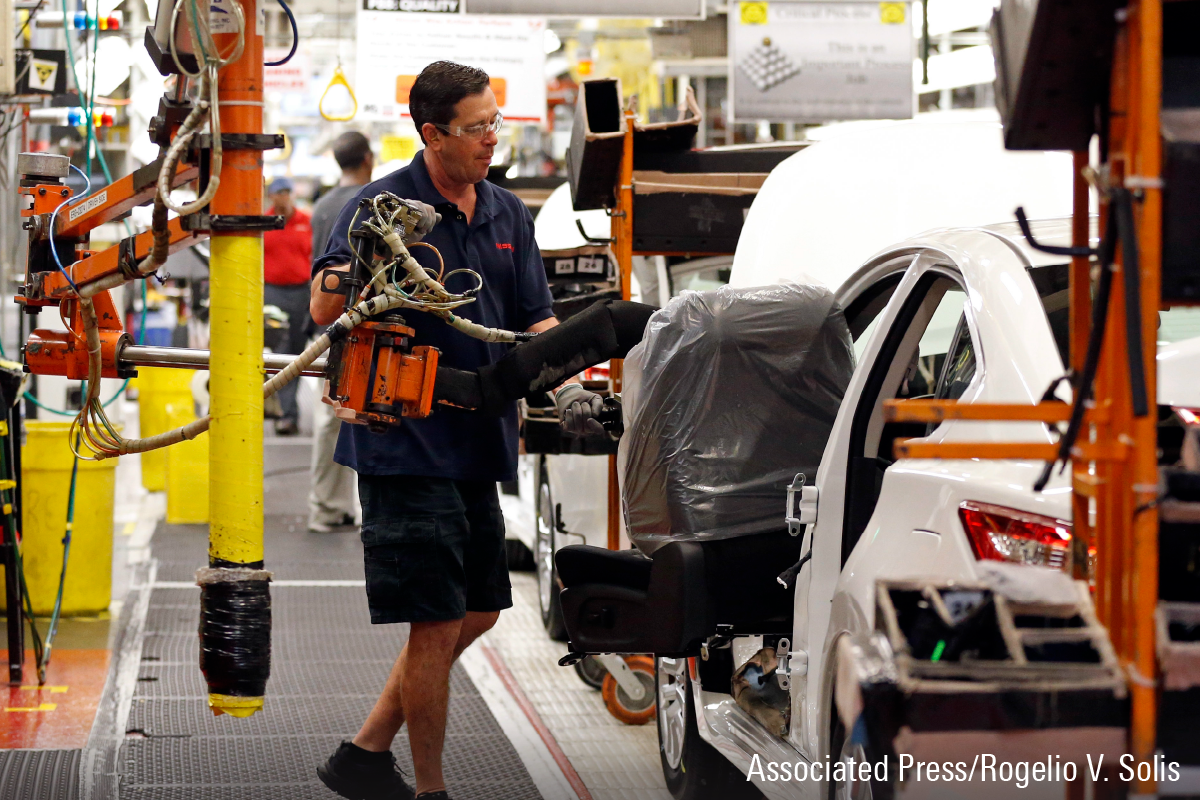
Passenger vehicles are an integral part of most people’s lives, and your car might seem an infinitesimal contributor to climate change. After all, a typical passenger vehicle only emits about 5.5 metric tons of carbon dioxide equivalent annually, a drop in the bucket compared with the nearly 50 trillion metric tons emitted annually. But the sheer number of vehicles leads to a massive contribution to the greenhouse gas emissions that cause climate change. In 15 countries alone, there are nearly 1.1 billion registered cars (mostly internal combustion-engine-powered), let alone the rest of the world.
Greenhouse gas emissions are a key environmental, social and governance risk for auto stocks. There are four others: product governance, human capital, corporate governance, and business ethics.
Although these risks are numerous, we view them as manageable. We highlight five auto stocks trading at attractive valuations, whose discounts compensate interested long-term investors for the risks. They are General Motors GM, Nissan NSANY, Renault RNSDF, Stellantis STLA, and Volkswagen VWAGY.
Autos Are Major Greenhouse Gas Emitters, but Electric Vehicles Can Help Reduce This ESG Risk Exposure
As highlighted above, carbon emissions are one of the most obvious ESG risks to automakers and suppliers. Recognizing that any effort to fight climate change requires addressing autos, governments around the world have introduced increasingly stringent fuel efficiency standards for internal combustion engines. The EU has largely been the leader in setting emissions targets, with current legislation targeting a 15% reduction by 2025 from 2021 and 55% by 2030 according to the European Green Deal framework. By 2035, the target rises to 100%.
With internal combustion engine improvements unlikely to deliver meaningful gains, manufacturers will need to meet fleet standards in other ways, such as producing an increasing proportion of hybrid and battery electric vehicles, which have significantly lower greenhouse gas emissions outside of those generated at the power plant. We forecast battery electric vehicles’ share of new auto sales of 30% by 2030, while hybrids will make up nearly 40%.
Although we forecast rapid adoption of electric vehicles, differences in strategy lead to a wide range of adoption at the firm level. By 2030, we forecast Volkswagen will be the industry leader at an estimated 6.3 million battery electric vehicles, or 18% of the market. We expect it will command the largest market share as it is already one of the world’s largest manufacturers by volume. At 5.2 million estimated battery electric vehicles in 2030, we forecast Stellantis STLA to be the second-largest manufacturer, though Tesla TSLA is not far behind, with volume of 5.0 million units.
In many cases, auto suppliers’ long-term electric-vehicle-derived profits will merely replace internal combustion engine-derived profits. However, some suppliers like BorgWarner BWA and Vitesco Technologies VTSCF will enjoy incremental profit opportunity due to increased content per vehicle from automaker customers’ powertrain electrification.
Product Governance Issues Can Lead to Recalls and Reputational Damage
There are other potential risks. Automobiles have historically been the deadliest mode of transportation. Although accidents are rarely the fault of the car, the sheer amount of time people spend in them generates product governance risk. Thus, manufacturers and suppliers are incentivized to ensure sound design and manufacturing. This point is exemplified by mass injuries caused by a defect in air bags made by Takata. To date, it has led to the recall of 100 million vehicles globally, with 67 million vehicles in the United States alone, by multiple original equipment manufacturers, or OEMs. A related investigation into Honda’s failure to report safety issues to regulators resulted in a US$70 million fine and up to $605 million in settlement fees.
Most recalls tend not to be very material to firms’ total profits. But some OEMs have recently opted to get ahead of these potential costs by initiating recalls at even the slightest sign of malfunction. For instance, Chrysler (under parent company Stellantis) voluntarily recalled 450,000 vehicles across the U.S., Canada, and Mexico for incorrect owner’s manual information that, if followed, could endanger passengers. By proactively recalling, OEMs and suppliers can help prevent potential costs from reaching material levels.
Human Capital, Corporate Governance, and Business Ethics Present Headline Risk and Less Financial Risk
Despite receiving a fair share of headlines, automakers have relatively low exposure to human capital risk stemming from low labour intensity and low labour skill, by our definition. Suppliers also have low exposure, with higher labour intensity offset by even lower labour skill. Still, we think some human capital risks are worth paying attention to, including relationships with unions and increasing need for highly skilled software developers.
Other material ESG issues worthy of attention include corporate governance, stemming from weaker shareholder power not uncommon in these industries, and business ethics, with bad behavior exemplified by Volkswagen’s “dieselgate” scandal. The deception broke many consumers’ trust and cost the company EUR 30 billion in fines and settlements.






















